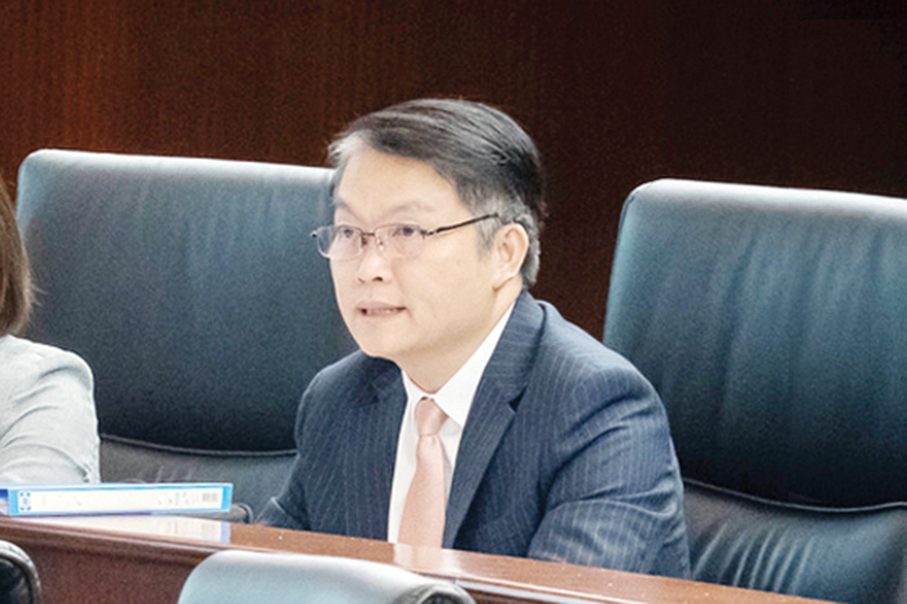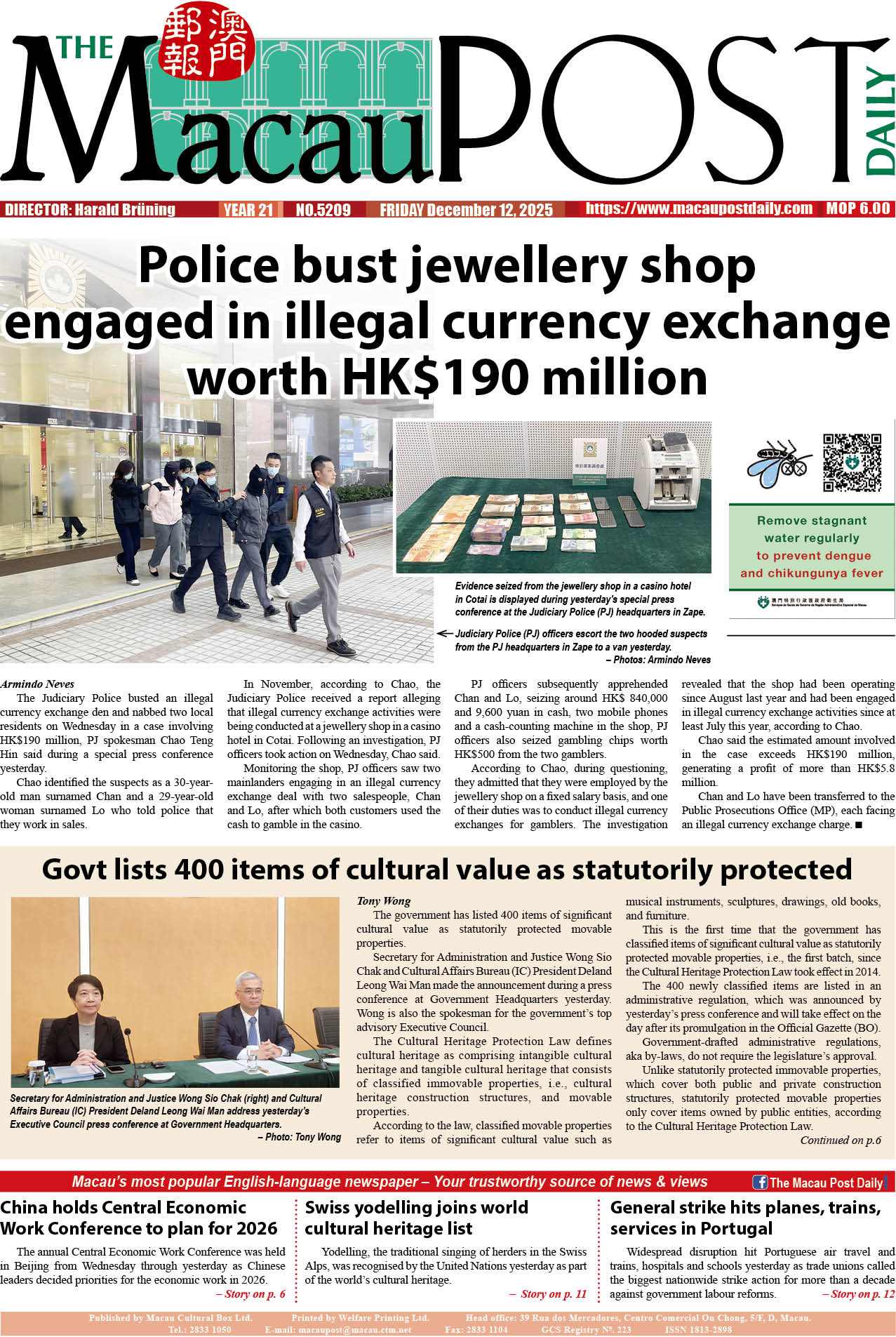The Legislative Assembly (AL) yesterday unanimously passed the outline of the government’s 2024 budget bill, according to which the government expects to run a budget surplus of 1.17 billion patacas next year.
Introducing the outline of the 2024 budget bill during yesterday’s plenary session, Secretary for Economy and Finance Lei Wai Nong noted that next year would be the first time that the government could achieve a formally balanced budget without having to allocate money from its financial reserves, after the three-year COVID-19 pandemic.
Because of the severely adverse impact of the COVID-19 pandemic on the local economy, the government recorded a budget deficit for three consecutive years from 2020 to 2022. In each of the three years, the government allocated money from its financial reserves to fill the respective deficit so as to keep a formally balanced budget. Macau confirmed its first COVID-19 case on January 22, 2020.
Macau’s fiscal and calendar years are identical.
When the government presented its 2023 budget bill to the legislature in November last year, it expected a budget deficit of 35.6 billion patacas for this year. The local government discontinued its long-running dynamic zero-COVID approach in early December last year. The 2023 budget bill was passed by lawmakers in its second and final reading later that month. Macau’s economy began to recover early this year, mainly driven by the rapid increase in visitors and the steady recovery of its gross gaming revenue (GGR).
Chief Executive Ho Iat Seng told lawmakers in August that this year’s deficit would be smaller than the initially-projected level thanks to the GGR recovery.
Lei said yesterday that according to its 2024 budget bill, the government expected its revenues to reach 107.11 billion patacas next year, while its expenditure next year was expected to amount to 105.94 billion patacas.
Consequently, according to the bill, the government expects to have a budget surplus of 1.17 billion patacas next year.
Lei said that Macau’s economy has gradually regained its “vitality” since early this year thanks to the strong recovery of its tourism and leisure industry, adding that the government expects the city’s economic recovery to continue next year.
Lei said that with an increased number of “cutting-edge” tourism and leisure elements and the government’s intensive campaigns to attract more tourists from foreign countries, the government expects the number of Macau’s visitor arrivals to continue rising next year.
Lei said that the government now expects next year’s GGR to reach 216 billion patacas, because of which its direct gaming tax revenue was expected to amount to 75.6 billion patacas, i.e., 35 percent of the predicted GGR in 2024.
Macau’s gaming operators pay 35 percent of their gross gaming receipts as direct tax to the government.
Lei said that despite the government’s revenues expected to increase next year, the global political and economic landscape remains complex and volatile. Lei said that with the aim of ensuring the stability of the public finances, the government will continue with its financial prudence next year, according to which Macau’s public entities will continue to restrict their expenses on civil servants’ administrative work while the government’s spending on its various welfare measures for residents will remain unchanged.
7,000-pataca injection to Central Provident Fund accounts returns
In addition, according to Lei, the 2024 budget bill proposes to again inject 7,000 patacas to the Central Provident Fund accounts of every eligible permanent resident next year.
The government has not injected the annual 7,000-pataca into eligible permanent residents’ Central Provident Fund accounts since 2021 because of its deficit budgets.
The government started to inject its annual handout to the Central Provident Fund accounts over a decade ago. The government has repeatedly underlined that it can only carry out the annual cash injections if the public finances achieve a budget surplus.
Moreover, according to Lei, the 2024 budget bill proposes to raise public servants’ salaries from 91 patacas to 94 patacas per salary point, an increase of 3.3 percent, effective from January 1 next year.
Lei also said he encourages companies capable of running a profit to raise their employees’ salaries.
Lawmakers will debate and review the bill in detail in one of the legislature’s standing committees over the next few weeks, after which another plenary session will vote article-by-article on it in its second and final reading.
The bill will become law after its promulgation in the Official Gazette (BO).

Secretary for Economy and Finance Lei Wai Nong addresses yesterday’s plenary session in the Legislative Assembly’s (AL) hemicycle. – Photo: GCS







